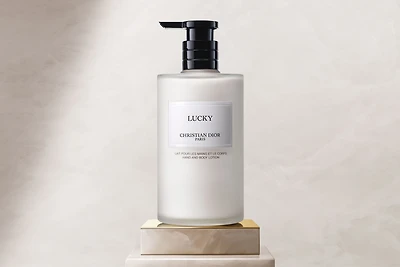Home
Lucky Bodies: Essays
Barnes and Noble
Loading Inventory...
Lucky Bodies: Essays in Bloomington, MN
Current price: $29.95


Lucky Bodies: Essays in Bloomington, MN
Current price: $29.95
Loading Inventory...
Size: Hardcover
A mother is a myth, a figure, a body. Through a series of essays spanning the political to the personal,
Lucky Bodies
reckons with motherhood. Marianne Jay Erhardt's striking debut takes inventory of what we demand and withhold from mothers, and what counts as care.
Plucking stars from the constellation of stories that have shaped her own emergence as a mother, she explores fables, family, religion, fairy tales, television, mythology, and games, all with exceptional wit and empathy. Erhardt considers the nature of care alongside
Peter Pan
,
Where the Wild Things Are
, and
Little House on the Prairie
. She reassembles memory with Busby Berkely chorus girls, 90's TV commercials, and a mid-Atlantic hurricane. She grieves her father's death and the wreckage of war through Aesop and discovers how little the Mother of God says out loud in The Bible. She reimagines Red Riding Hood's wolf, reflects on faith with Bigfoot and repurposes a Covid wellness survey to take stock of our collective isolation, asking readers, "How alone are you?"
Throughout
, Erhardt establishes herself as a memoiric cultural critic, imagining how we might make and inhabit stories that cultivate an ethic of care.
Lucky Bodies
reckons with motherhood. Marianne Jay Erhardt's striking debut takes inventory of what we demand and withhold from mothers, and what counts as care.
Plucking stars from the constellation of stories that have shaped her own emergence as a mother, she explores fables, family, religion, fairy tales, television, mythology, and games, all with exceptional wit and empathy. Erhardt considers the nature of care alongside
Peter Pan
,
Where the Wild Things Are
, and
Little House on the Prairie
. She reassembles memory with Busby Berkely chorus girls, 90's TV commercials, and a mid-Atlantic hurricane. She grieves her father's death and the wreckage of war through Aesop and discovers how little the Mother of God says out loud in The Bible. She reimagines Red Riding Hood's wolf, reflects on faith with Bigfoot and repurposes a Covid wellness survey to take stock of our collective isolation, asking readers, "How alone are you?"
Throughout
, Erhardt establishes herself as a memoiric cultural critic, imagining how we might make and inhabit stories that cultivate an ethic of care.
A mother is a myth, a figure, a body. Through a series of essays spanning the political to the personal,
Lucky Bodies
reckons with motherhood. Marianne Jay Erhardt's striking debut takes inventory of what we demand and withhold from mothers, and what counts as care.
Plucking stars from the constellation of stories that have shaped her own emergence as a mother, she explores fables, family, religion, fairy tales, television, mythology, and games, all with exceptional wit and empathy. Erhardt considers the nature of care alongside
Peter Pan
,
Where the Wild Things Are
, and
Little House on the Prairie
. She reassembles memory with Busby Berkely chorus girls, 90's TV commercials, and a mid-Atlantic hurricane. She grieves her father's death and the wreckage of war through Aesop and discovers how little the Mother of God says out loud in The Bible. She reimagines Red Riding Hood's wolf, reflects on faith with Bigfoot and repurposes a Covid wellness survey to take stock of our collective isolation, asking readers, "How alone are you?"
Throughout
, Erhardt establishes herself as a memoiric cultural critic, imagining how we might make and inhabit stories that cultivate an ethic of care.
Lucky Bodies
reckons with motherhood. Marianne Jay Erhardt's striking debut takes inventory of what we demand and withhold from mothers, and what counts as care.
Plucking stars from the constellation of stories that have shaped her own emergence as a mother, she explores fables, family, religion, fairy tales, television, mythology, and games, all with exceptional wit and empathy. Erhardt considers the nature of care alongside
Peter Pan
,
Where the Wild Things Are
, and
Little House on the Prairie
. She reassembles memory with Busby Berkely chorus girls, 90's TV commercials, and a mid-Atlantic hurricane. She grieves her father's death and the wreckage of war through Aesop and discovers how little the Mother of God says out loud in The Bible. She reimagines Red Riding Hood's wolf, reflects on faith with Bigfoot and repurposes a Covid wellness survey to take stock of our collective isolation, asking readers, "How alone are you?"
Throughout
, Erhardt establishes herself as a memoiric cultural critic, imagining how we might make and inhabit stories that cultivate an ethic of care.

















